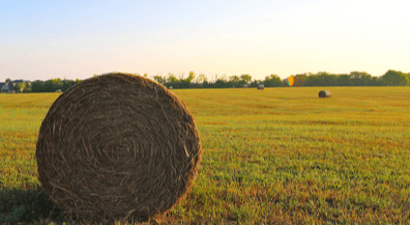Neighbour Law: Do I owe my neighbour a duty of lateral support?
A case summary on Petropulos & Another v Dias
Although an owner is considered as having absolute rights over their property, such rights are not unlimited as neighbour law imposes certain rights and obligations on property owners. According to our law, a property owner has a right to have his land supported at the boundaries by his neighbour’s land, this is known as lateral support. This means that an adjoining landowner cannot alter the boundary of their property in a manner that may adversely affect or weaken their neighbour’s land. The Supreme Court of Appeal confirmed the duty to lateral support in Petropulous & Another v Dias,[1] where it clarified that this duty applies not only to the land of the neighbouring property, but also the buildings.
Background:
The appellant, respondent and Mr Venter owned adjoining properties in Camps Bay, Cape Town which are situated on a sloping mountainside. In 2008, the respondent and Mr Venter’s properties had already been developed for years, whilst the appellant’s remained undeveloped. During 2008, the first appellant and Mr Venter each undertook excavations on their respective properties, near the boundaries of the respondent’s property. The excavation by the appellant was in preparation for building a house, whilst Mr Venter’s was for building an additional garage, which had minimal to no effect on the land. The excavation on the appellant’s property was substantial as they were building three levels and a lift shaft. To provide lateral support, the levels were secured by a retaining wall.
During 2008, there was major movement beneath the ground which resulted in the entire slope on the respondent’s property moving. The respondent’s property moved laterally and downwards towards the excavation on the appellant’s property, which resulted in extensive structural damage. Mr Venter’s property was also affected, resulting in him abandoning the property. The respondent attributed the damage to his property to the excavations by the appellant and instituted a claim for damages based on a breach of a duty to provide lateral support.
Decision by the Cape Town High Court:
The court a quo held that the duty of lateral support extends to buildings constructed on the land, provided that such land has not been ‘unreasonably loaded so as to place a disproportionate or unreasonable burden’. The court held that the respondent had not forfeited his right to lateral support by unreasonably loading his land. The respondent’s property had moved as a result of the excavation and therefore the appellant owned the respondent a duty to provide lateral support.
Issues decided by the SCA:
- Is the duty of support owned only in respect of land in its natural state?
- Did the excavations on the appellant’s property breach such duty?
- Was there causation?
Court’s decision:
Firstly, the court examined the appellant’s argument based on English law that the duty of lateral support is owed only to land in its natural state. The court examined the development of our neighbour law and stated that the duty of lateral support is reciprocal between neighbours. The right is incidental to the ownership of property and is not servitudal in nature. In our neighbour law, fairness and equity are important considerations, and constitutional values of ‘ubuntu’ must be considered. It upheld that the duty of lateral support extends to buildings on the land.
The court however rejected the court a quo’s contention that the duty of lateral support extends to buildings except where such land has been unreasonably loaded as to place an unreasonable burden on the neighbouring land. The court stated that this poses an unreasonable obligation on land owners who have complied with building and town planning regulations who would now have the duty of proving that the construction is not unreasonable or disproportionate.
Secondly, the court relied on the evidence of two geo-technical experts. The court followed that the respondent had succeeded in establishing that the slope mobilisation had resulted from a breach of the duty to provide lateral support on the appellant’s property. The court stated that although the slope instability was a contributory factor, it would be illogical for the court to deny that the destabilisation of the respondent’s property was not affected by the appellant’s excavation. As such, the appellant had breached their duty to provide lateral support to the respondent’s property.
Lastly, the court looked at the element of causation. The court examined whether, but for the excavation, the slope would have mobilised. The court found that the excavation was substantial and it is hard not to accept the second expert’s opinion that there was a clear link between the excavation and the slope failure. There must be a logical explanation that the respondent’s property mobilised shortly after the excavation, after being unaffected for 16 years.
The SCA held that the right to lateral support is a natural right incidental to the ownership of property. The court therefore dismissed the appeal with costs.
This judgment clarifies that our ownership rights to property are not absolute. Property owners owe their neighbours a reciprocal duty to provide lateral support, even if the land has been improved.
[1] [2020] ZASCA 53.
Written by Sinenhlanhla Nene- Candidate Attorney
Overseen by Sifiso Msomi- Partner





